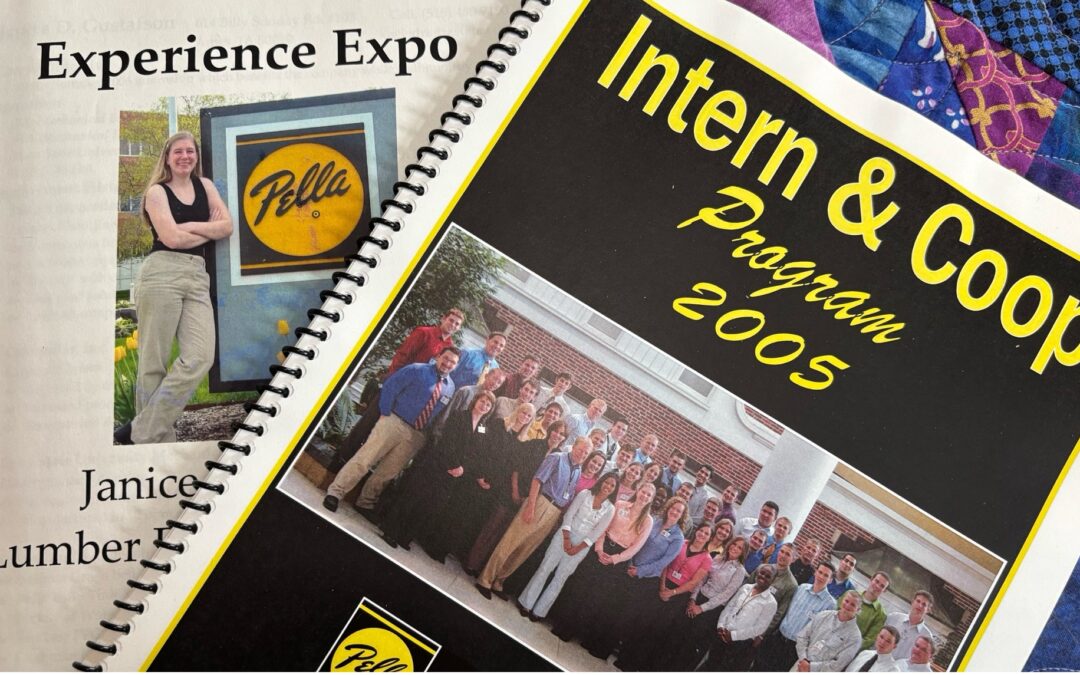It’s intern season! I loved being an intern. There was so much to learn about the company, the job, and why (and whether) my major actually mattered. I had a total of four internships in college because I had two while I was finishing up an advanced degree, so I definitely did my fair share. After graduating, when I would go back and visit the Society of Women Engineers or another group I would present on “How to be an Intern.” While I don’t claim to be an expert on the topic, I did pick up on a few things worth learning that are timeless. So send this week’s article to an intern you know so they can get a little leg up on their career from the get-go. And if someone forwarded you this article, it’s a quick read and worth your time if they did so.
Network
You’ve heard this before. Network. But what does that actually mean as an intern? Networking evolves a bit as a career moves along, but as an intern it means doing the following things:
- Invite at least one executive to lunch. Yes, they’re busy. No, they don’t always take a lunch break. But I think you’ll be surprised how many will say yes. Any executive worth their salt wants to mentor others and is always on the lookout for talent. Then during the lunch, ask them questions about their career. Are they where they thought they would be when they were your age? How do they feel about that? What advice do they wish they had at your age? What’s some bad advice they think is overrated or wrong for their team/company/career? Before your lunch, try to think of how you want them to feel walking away and what you want them to know about you. Be curious and humble above all else.
- Add your boss, fellow interns, and mentors to your LinkedIn connections. (And have a LinkedIn page that’s reasonably up to date and professional, of course). It’s surprising how easy it is to lose track of people even in this connected world, and it’s also surprising which connections end up being the right ones for you down the line. Especially try to get a connection with the intern that “everyone knows”. There’s always at least one.
- Collect business cards. Yes, I know they’re archaic. They absolutely are. But everyone still uses them. Even if you don’t have one to give people, collect theirs. After you get a card and are on your own again, write the date they gave it to you and a line or two about who they are or something about them. You may never use this info. But then again, when you’re looking for your first (or second or third or fifth) full-time position, it’s helpful to reach out to someone and know who you’re reaching out to. It’s completely irrelevant whether you land at that company full time or not because they know other professionals in their own network, possibly at your dream company and job.
Ask Questions
Ask people for their perspectives – on their job, the company, their major, the city they live in, etc. Be careful not to take too much of people’s time during work hours and watch for social cues that they are not available at the moment to chat. But getting morning coffee/water, to/from lunch, and similar times you can always be asking questions. People like to talk about themselves and an internship is very much a chance to figure out what you like and don’t like in an employer.
Try to Wait for the New Wardrobe
This one feels shallow, but is important. If possible, try to wait until your first week as an intern is over before you go buy clothing for work. This is because a company’s stated dress code and their real dress code often don’t match. My first internship I went out and bought several pairs of khaki pants before discovering everyone in my particular office wore jeans. They were one of the only office groups who did so. I wasted money on khakis when my existing jeans would have been just fine all summer. I apparently didn’t learn this lesson because for my second internship I also bought new khakis. This time I was on a plant floor and got grease stains up and down the side of my pants on the second day I wore them. I was around machinery all day and those $60 khakis were quickly ruined (yes, it was 20 years ago. Try not to mock me for being old and nice pants being cheaper than they are today). Some workplaces actually have rules about hair and skirts and loose clothing and hoods for safety reasons. If you have even two professional outfits you can wear to Day One and Day Two (and then wash quickly for the rest of the week before casual Friday), do so. Another note is that if you didn’t submit a picture ahead of your internship for your badge, you’re probably getting a picture taken on your first day to be your badge picture. Make sure you’re prepared for that picture to be what pops up with your emails/IMs/slacks and emails until the end of time because some companies don’t let you pick your own profile picture.
Do the “Intern Things”
If your employer is large enough that they have intern events, do them. Do the food drive and the mock interviews and the networking receptions with VPs and the all-day leadership/conflict management/diversity training. First, they’re usually fun. Second, you’ll generally learn something. Third, the activity might be helping others or making the world a better place (like with the food drive). Last, the people putting on these events are paying attention to how you engage with their company and whether you “fit.” You’re also trying to determine if the company “fits” you. (Note I say that in quotes because too much hiring for “fit” leads to groupthink, bias, and too much homogeneity). Intern events are part of a company’s culture and it’s important to take all of it for a test drive.
Get the Certifications, Trainings, Etc.
The time when you’re an intern is one of the few times in life when you will be able to make time to get certifications and otherwise add skills without having to move time with your kids/spouse/job responsibilities to do so. I got my Six Sigma Green Belt at my first internship because the company had an internal program to complete it. That certification has served me very well ever since. So if your company has that kind of certification available, make time to get it done.
Do the Cruddy Task
This is my best piece of advice. Every group, every company has some cruddy task that no one likes doing. It takes too long, they view it as worthless, but upper management just won’t let it go. When I was at Caterpillar, it was migrating, condensing, and cleaning up old engineering files. At Pella Corp it was reducing the amount of sawdust in the air and updating the sawdust piping drawings. At Vermeer it was something called “Expect the Best” where production line employees would submit forms suggesting improvements or corrections to machines, then those drawings had to be updated and filed. In each of these cases, I dug into the backlog and worked the queue down until it was no longer this huge ugly thing no one liked doing. People appreciated it immensely, and it was helpful to learn more about the company through these mundane tasks. It’s not fun. But people really appreciate it and there’s the old adage – people won’t remember what you say but they will remember how you made them feel. They will remember you with feelings of gratitude and relief, which is worth more than anything. I promise it doesn’t mean you’ll be stuck doing grunt work forever.
Armed with your shiny new intern experiences, go forth and conquer. It’s the first step on a path to being a corporate vice president, if that’s something you want for yourself. If you’d like to talk about your internships or interns (or if this made its way to you and we were interns together, I’d love to catch up), let’s chat. If you’d like to get these articles weekly straight to your inbox and never miss one, sign up for my newsletter.
My book, Transform Procurement: The Value of E-auctions is now available in ebook and paperback formats: https://www.amazon.com/dp/B0F79T6F25




